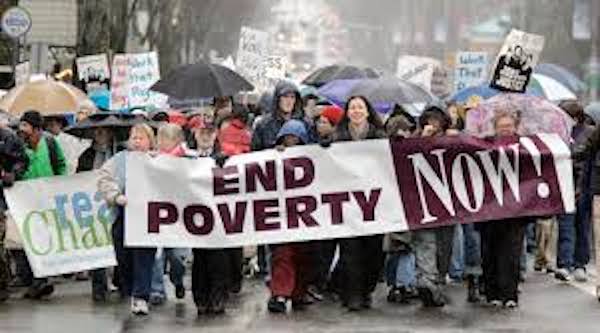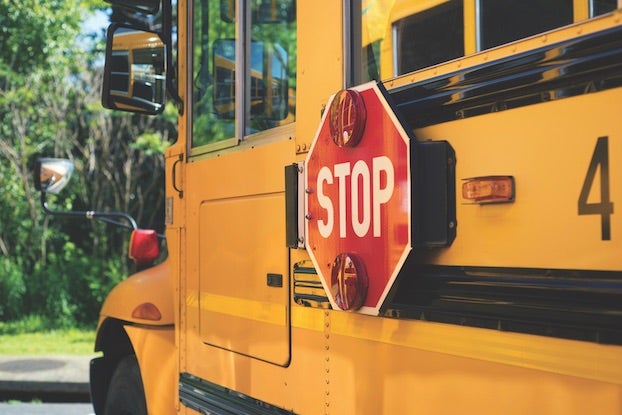Jim Beam column:Time to tackle state poverty
Published 7:40 am Saturday, February 18, 2023

- Louisiana has been on the top of the nation's poverty list much too long, and it's time to improve the numbers. (Photo courtesy of the Center for American Progress Action Fund).
One of the most disturbing figures I saw recently was 2,032,783, which is 44 percent of the state’s 4.6 million population that is on the Medicaid rolls. That is the federal-state health care program for low-income Americans.
In order to qualify for Medicaid, households cannot make more than 138 percent of the federal poverty level. The 2023 poverty level for one person is $14,580. For a family of four, it’s $30,000. So a family of four couldn’t make more than $41,400 annually and qualify for Medicaid.
During the coronavirus pandemic, safeguards were put in place that kept states from dropping residents off the Medicaid rolls if they earned more than the 138%. Louisiana added nearly 442,000 to the Medicaid rolls over the course of the pandemic and they could lose Medicaid coverage when the pandemic safeguards no longer exist.
The Louisiana Budget Project (LBP) that advocates for those on Medicaid and others in this state issued a detailed report last October titled, “Census 2021:Louisiana Poverty, Income and Health Insurance.”
In that report, LBP says, “Going back to the pre-pandemic status quo is not good enough.” However, every person on Medicaid will be reviewed during a yearlong process starting in April to determine if they still qualify for coverage.
Unfortunately, Louisiana’s numbers aren’t good. The official poverty rate in Louisiana, for example, was 19.6 percent in 2021, highest in the nation and representing about 883,000 citizens. The median income of $52,087 in 2021 was third lowest in the nation. National median household income was $70,800.
Black median household income in Louisiana was $33,576. Latino income was $54,249. White and non-Hispanic median income was $64,728.
The Houma-Thibodaux metro area experienced an increase in median income to $61,478, highest in the state. The Lake Charles metro area median income was second highest at $58,736. Opelousas had the lowest median income at $38,599.
Child poverty in Louisiana — at 26.7% — is second highest in the nation. LBP says, “This leaves 285,000 children to struggle, including over 146,000 in deep poverty.”
The national child poverty rate was 16.9%, which LBP said remained high. Mississippi had the highest child poverty rate at 27.6%. Utah had the lowest child poverty rate at 7.9%. Other low states were New Hampshire, North Dakota, Vermont, and Minnesota.
LBP said overall poverty has harmful, long-lasting effects on families and disproportionately affects women, children, those without a college degree, female headed households, and people of color.
Monroe had the highest poverty rate at 27.2%. Others were Opelousas, 27.1%; Shreveport-Bossier City, 21.4%; Alexandria, 19.9%; Lafayette, 19.6%; Lake Charles, 18.7%; New Orleans-Metairie, 18.4%; Baton Rouge, 17%; Hammond, 15.4%; and Houma-Thibodaux, 14.6%.
LBP says Louisiana can build a stronger, more equitable economy that works for all Louisianans by establishing a state minimum wage that rises with inflation and by reforming the tax structure to support students, build strong communities and safeguard its most vulnerable citizens.
Programs are underway that should help reduce the state’s poverty numbers.
The state Board of Regents has embarked on a plan to have 60 percent of working adults in Louisiana holding a degree or work credential by 2030. A number of those in this state without degrees are in the poverty ranks.
The University of Louisiana System, of which McNeese is a member, has created the Compete LA program targeting the one in five adults — 653,000 citizens — in Louisiana who have some college credit but no degree.
About half of the students leaving the third grade in this state can’t read well. Baton Rouge schools are implementing a new requirement that districts identify third and fourth graders who are struggling with reading and provide them with 30 hours of additional instruction.
State Rep. Richard Nelson, R-Mandeville, has reintroduced a bill that would hold back third grade students, with some exceptions, who are experiencing reading problems.
Louisiana has had high poverty rankings much too long. Increased funding for early childhood education is the solution. The Century Foundation explained why that is the key.
“The first five years are when a child’s brain develops fastest and when they learn key social, emotional, and academic skills, skills they’ll need during kindergarten and in order to have positive educational outcomes,” the foundation said.
“Because they support these developments, high-quality early learning programs play an important role in setting children up for success in school, college, and beyond.”
With courage and vision, we can do more to improve the lives of all our citizens.





